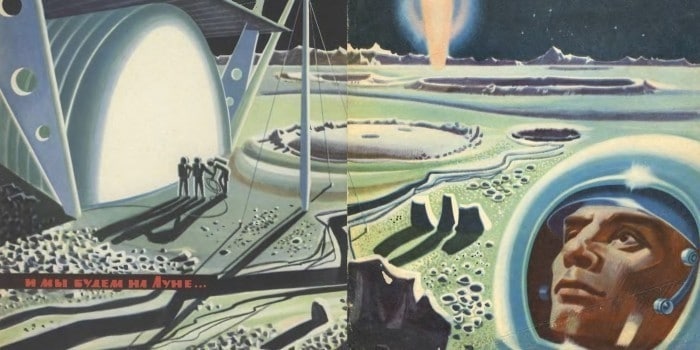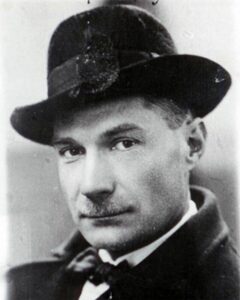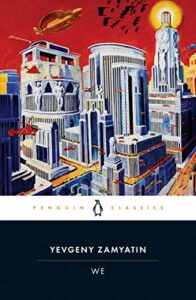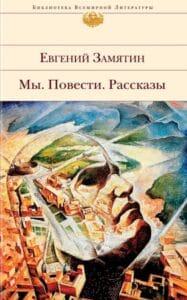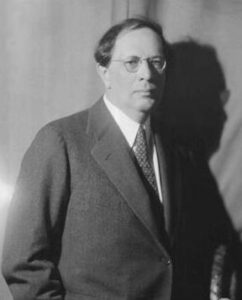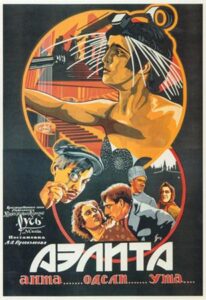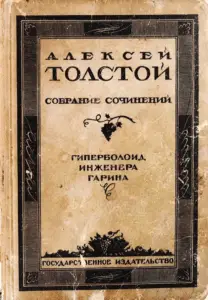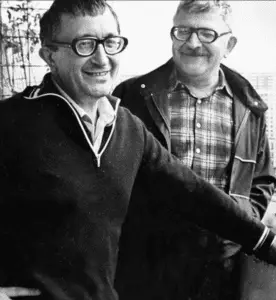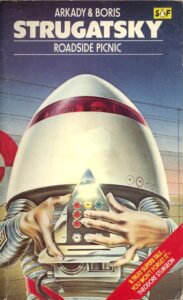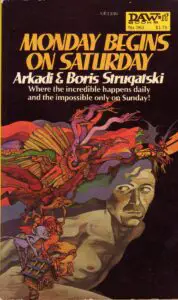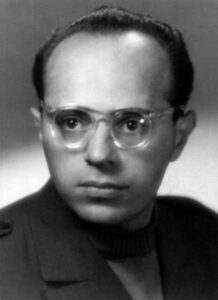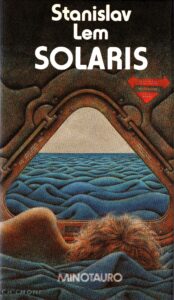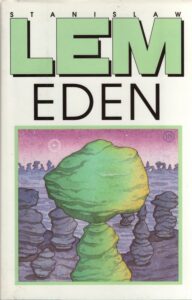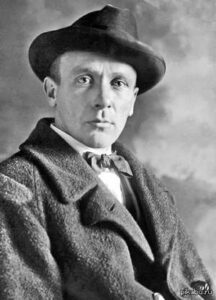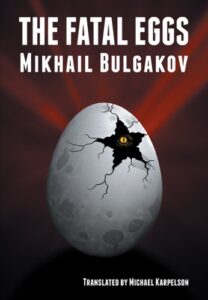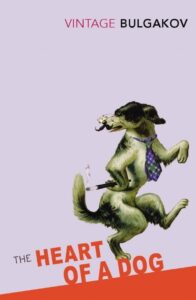Science fiction/fantasy, often shorthanded to SFF, is a genre of media concerned with supernatural, fantastical, or other elements beyond our current technological capabilities. Although its roots run deep, borrowing inspiration and elements present in The Odyssey or 20,000 Leagues Under the Sea, SFF truly came into its own after the Industrial Revolution. It was a time when technology and society were changing so rapidly that many began to think that utopia – or complete collapse – were just around the corner. SFF evolved as a powerful way to speculate about how technology would develop, how society would change, and how extraordinary events would affect us as humans.
America has come to be seen as a leader in SFF. America’s culture of idealism and, particularly after WWII, its role as the world’s leading economy and producer of globally consumed entertainment have propelled this. However, many early and influential works came from Central and Eastern Europe – and more continue to come from there or from sources influenced by the region. Stan Lee, the founder of Marvel Comics, was born of immigrants from Romania and two recent video games that already have cult followings – The Witcher and Cyberpunk 2077 – are both from Poland.
On the other side of the Iron Curtain, there was a proliferation of SFF content. Like in American pulp fiction of the time, writers under communism produced a slew of tales of scientists and adventures who used rationality, socialism, and advanced science to change their societies and envisions futures on on Earth and in the stars. Sometimes the genre was well suited to communist needs. Other times, it was just fantastic enough to short-circuit the censorship process, telling tales through allegory that could be read in multiple ways, including as negative commentary on the writer’s own society.
Below is a primer on five of the authors writing under communist and post-communist states whose works are considered highly influential in the SFF genre.
Yevgeny Zamyatin (1884-1937)
Zamyatin is one of the most important of those listed here in that he is considered one of the fathers of the modern dystopian genre. Educated as a naval engineer in St. Petersburg, he was known for his biting satire that sometimes drew tsarist censure. Though a Bolshevik before the 1917 revolution, he was not popular with the party elite, and his work of the time is rife with irony and observations of mankind’s cruelty.
Zamyatin’s most important work is We, published in 1920. It is one of the works that would have a major influence on Huxley’s Brave New World. It was also an early controversial work in the USSR that spurred debate within the party about the need to create a party structure to censure works that were deemed unconstructive to party policy.
From Barnes and Noble’s description of the 2020 reprint of the 1959 edition: “[We] takes the modern industrial society to an extreme conclusion, depicting a state that believes that free will is the cause of unhappiness, and that citizens’ lives should be controlled with mathematical precision…”
While Zamyatin’s work has more in common with 1984, fans of works such as The Hunger Games will most likely enjoy this foundational piece of the dystopian genre.
Alexey N. Tolstoy (1883-1945)
Although formerly a member of the White Russians, which fought against the Communists in the Russian Civil War, Tolstoy became a supporter and honored artist of the Soviet state. He was distantly related to the more well-known Tolstoy of War and Peace fame. Like Zamyatin, he studied engineering in St. Petersburg in his youth. He emigrated during the Civil War, but returned in 1923, citing homesickness.
His literary career took off, particularly with the start of his trilogy The Road to Calvary, which follows a series of intellectuals’ conversion to Bolshevism during the Russian Civil War, and which he began writing before his return home. Tolstoy became renowned for his science fiction, but he also wrote thrillers, plays, and even children’s books.
His most famous work of science fiction is Aelita (also known as Aelita, or the Decline of Mars), published in 1923. In it, a Soviet engineer invents a fantastic new rocket and travels to Mars with a retired soldier. There, they encounter an advanced civilization that has a large wealth gap between the elite and the poor. The pair help support a revolution of the lower classes led by the beautiful Martian Aelita as Mars faces environmental catastrophe.
Aelita was adapted as a silent film in 1924.
Although not as highly rated, The Garin Death Ray (sometimes known as The Death Box) is a novel that was also turned into a Soviet film.
Although he largely supported the Soviet authorities, Tolstoy was one of the most influential and talented Soviet writers. His work, both science fiction and not, deserves to be more widely recognized outside of his home nation.
The Strugatsky Brothers
(1925-1991; 1933-2012)
The Strugatsky Brothers, Arkady and Boris Strugatsky, are arguably the most famous of the Soviet SFF batch and it’s highly likely you’ve heard of their work, even if you haven’t realized it. Their style famously blends SFF with characters driven by deep inner conflicts and complex psychologies. Their works often feature compassionate, intellectual protagonists, humor, and analysis of socialist problems through the lens of science fiction.
The brothers lived through WWII, with Arkady fighting for a time at the front. Arkady later went on to study languages while Boris studied astronomy and computer engineering. Both brothers began writing early in their lives and had long, successful careers. Their first collaboration piece, the novella “The Land of Crimson Clouds,” was actually written on a bet between the pair and Arkady’s first wife to see if they could collaborate. The series Noon, XXII Century revolves around the theme that the people in the future are not in any way different than the people in the present.
Another influential work, Roadside Picnic, was published in 1972, and is the most internationally famous Strugatsky book. It is the basis for the acclaimed 1979 Tarkovsky film Stalker, which influenced such iconic works as the S.T.A.L.K.E.R. video games and the Metro 2033 book and game series. In it, aliens briefly visit Earth and leave behind mysterious and dangerous “Zones.” The book deals with the stalkers, those who infiltrate the restricted Zones and scavenge for curiosity and profit. (In the modern lexicon, stalkers are now individuals who enter restricted areas such as Chernobyl in a form of industrial tourism.)
With Roadside Picnic, the Strugatskys produced an iconic work that deals with the space-time continuum, aliens, and human nature. For those who wish to read widely and deeply, this is not a book to be missed, and serves as a stepping-stone for other Strugatsky works.
Stanislaw Lem (1921-2006)
Stanislaw Lem was a Polish science fiction writer known for his humor and often irreverent takes on society. Born in Lwow, Poland (now Lviv, Ukraine) to a family headed by a wealthy doctor, he was an on-and-off-again medical student for the early years of adulthood. His debut novel was A Man from Mars, a serial piece where a laboratory fights a cyborg from Mars. Lem later looked upon this work with embarrassment and wished he could retract it from publication, feeling that it was too purely mercenary.
While Lem wrote a truly enormous volume of work, he is most well known (and earns his place on this list) for the 1961 novel Solaris. Solaris follows a crew of astronaut-scientists on a research station as they attempt to communicate with and understand an alien intelligence that takes the form of a giant planetary ocean. They are hindered in their attempts by a mysterious emotional illness that afflicts even the psychologist sent to cure them, and they become more and more erratic as they attempt to understand the mysterious ocean intelligence.
Like Roadside Picnic, Solaris received a Tarkovsky adaptation, which is often cited as one of the greatest science fiction films in all cinematic history. Interpretations of the book itself abound and are as varied as the vast readership it garners—Lem himself once stated that most accurate analysis of his text came from those that used the original Polish rather than the English translation!
Lem’s work goes well beyond the well-known Solaris, though. In Eden, for instance, he tells of a group of astronauts that notice a planet so beautiful that it seems to call out to them like a siren. They come too close to the atmosphere, trying to get a better look at the surface, and crash. There, they find a race of beings and a society torn apart by an oppressive, secretive government that has run amok with technology.
Solaris embodies the classics of the science fiction genre: aliens, spaceships, and astronauts caught in the middle. Not just an adventure in the stars, it combines hard and human sciences for a book that deserves its place on lists of not just the best science fiction, but the best fiction, period.
Mikhail Bulgakov (1891-1940)
Bulgakov, alongside the Strugatskys, is possibly the most recognizable name on this list. From Kyiv, Ukraine, he isn’t just known for his SFF works, but also his plays, satire, and contributions to venerology during his early years as a pediatrician.
Those who know him are most likely to know The Master and Margarita or Heart of a Dog as his major works. These are brilliant pieces that use the trappings of science fiction and the supernatural to criticize and comment on life in the Soviet Union: in The Master, the Devil himself arrives in 1930s Moscow to stir up trouble in the officially atheistic Soviet Union. In Heart of a Dog, a cutting satire of Bolshevism, a street dog is implanted with human testicles and a human pituitary gland by a mad scientist. The scientist’s initial triumph is replaced by horror as the canine transforms into a man with grotesque and bestial behavior – that makes him seemingly well-suited to Soviet society.
Bulgakov wrote other science fiction as well, such as The Fatal Eggs, which features agressive and fast-reproducing amphibians and repitiles that overtake Moscow.
Bulgakov’s realism and humor gained him an enormous fanbase but made him unpopular with the Soviet authorities. Most of his masterworks were created but banned with the USSR until the 1950s, over a decade after his death. Even then, they were still heavily censored.
Bulgakov is referred to as one of the most important twentieth-century authors of Russian-language literature. While he was censored in life, he created profound works that offer insight into the lives of the Soviet citizenry and artist class of the time. His satire and humor are timeless. Not just a classic SFF author, he is a classic author who deserves the acclaim he was never allowed in life.
Conclusion
SFF from behind the Iron Curtain was often aided by authors who were scientifically trained but also masterful story tellers. Their informed visions of the future and the fantastic are often made all the more real by their hard ties to reality.
The above five authors are barely the tip of the iceberg when it comes to authors who operated behind Iron Curtain. There are endless works to be read by an endless number of authors: Konstantin Tsiolkovsky, Alexander Bogdanov, Kir Bulychov, Alexander Grinevsky…the list goes on and on! The listed five are simply a starting place for those interested in exploring the seminal works of Russian and Soviet SFF literature.
Hopefully, this sparks an interest in you not just in science fiction, but in broader forms of literature in general. Good stories can be found in every culture—they are what brings us together no matter who we are or where we’re from. So, pick someone off the list and try them out. You never know what you will enjoy and who it will help you connect with.
You’ll Also Love

10 Essential Polish Authors: A Nation Preserved and Prospering in Words
Polish literature has long been central to the nation’s identity. Especially during periods when Poland did not exist as an independent state, language became both a carrier of national spirit and a form of resistance against assimilation. This centrality of words is reflected in the widespread tendency of Polish writers and artists to transform great […]

The Not-So-Hidden World of 5 Soviet Underground Poets
Soviet underground poetry was not always buried from sight. It had many contributors including those who published both underground and with state publishing houses. The underground scene had an entire ecosystem with not only cutting-edge poems shared between enthusiasts, but also literary journals, underground critics, and even awards ceremonies. This article highlights five key figures […]

Sergei Lukyanenko: A Psychologist in Russian Science Fiction
In an interview with The New York Review of Science Fiction, Sergei Lukyanenko was asked why he started writing literature, to which he responded: “I couldn’t manage to find the sort of book I wanted to read. So I said to myself, why not simply write the kind of book I want to read? Then […]
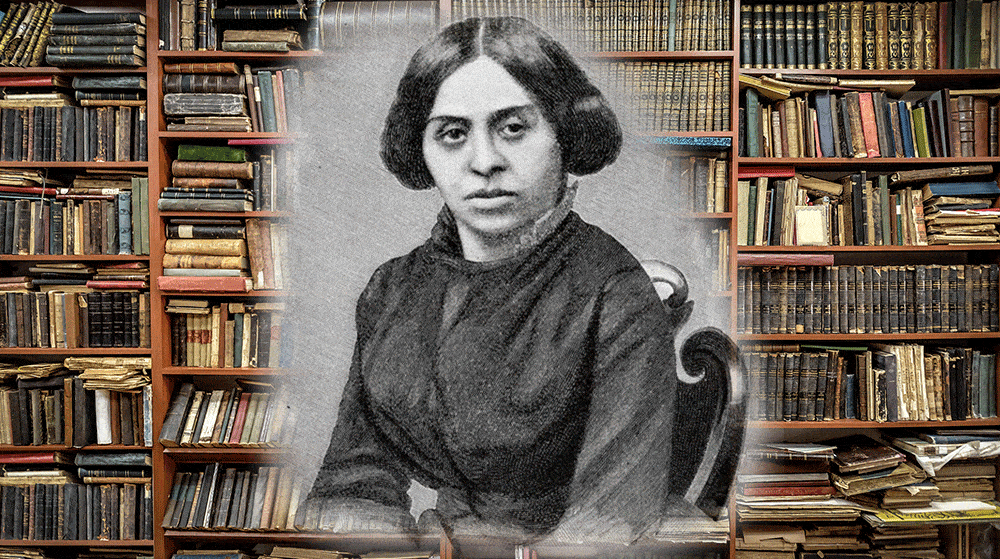
Nadezhda Khvoshchinskaya – A Forgotten Great of Russian Literature
Nadezhda Khvoshchinskaya became a prolific and widely popular author in early 19th century Russia. Her most famous novels reflect on the stylistic staples of 19th century Russian literature, focusing on women’s issues and other social problems through the lens of realism. Despite her fame and success, Nadezhda Khvoshchinskaya has largely been forgotten in the study […]

Boris Ryzhii, Russia’s Bandit Poet of the 90s
No other Russian poet of the 90s stands out like Boris Ryzhii. He received some of Russia’s highest literary honors, including honorable mention for the Anti-Booker Prize, and, after his early death, the Northern Palmyra. Composed amidst the chaos and crime of perestroika, his poems stand like opponents in a boxing ring, where ugliness and […]


